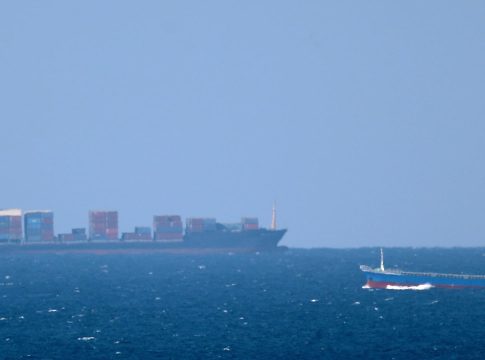The Resilient Spirit of Chinese Businesses Amid Middle East Tensions
Optimism in Uncertain Times
In the face of rising tensions in the Middle East, particularly surrounding Iran and Israel, Chinese businesses are displaying remarkable optimism about opportunities in the region. Recent data reveals that shipments from China to Dubai have surged by 20% compared to last year, with businesses stocking up on essential goods. As Bear Huo, General Manager at fintech startup FundPark, notes, confidence among Chinese merchants remains strong, largely due to the Middle East’s emergence as a vital market for growth.
Shifting Trade Dynamics
The ongoing tension between the U.S. and Iran has prompted Chinese companies to look toward the Middle East for new opportunities. With trade relations strained between China and the United States, businesses are increasingly seeking investments and partnerships in this dynamic region, especially in electric vehicle markets. In a positive diplomatic gesture, China played a role in helping Riyadh and Tehran restore relations this year, laying the groundwork for potential economic collaboration.
Despite the optimism, the recent geopolitical landscape remains precarious. Huo points out that ships navigating the Dubai port are moving slower, and there are fewer flights, creating logistical challenges. While Chinese companies avoid direct trade with Iran due to U.S. sanctions, they cautiously monitor the situation, hoping for a swift resolution to the conflicts.
Evaluating the Risks
China’s Ministry of Foreign Affairs has voiced strong objections against U.S. military actions in Iran, underscoring Beijing’s interest in a politically stable Middle East. Yue Su, a principal economist at the Economist Intelligence Unit, notes that a stable region aligns with China’s economic and strategic ambitions as it positions itself as a constructive global player.
However, Huo cautions that despite this optimism, there are still elevated risks associated with doing business near conflict zones, highlighting how international sanctions continue to influence market behaviors.
Future Prospects: A Bright Horizon?
The silver lining in this complex scenario may lie in the potential easing of U.S. sanctions against Iran. If this happens, thousands of Chinese businesses could flock to the country to invest in tourism, real estate, and infrastructure development. Observers like Qin Gang from Ode & Song Cultural Industry reflect on the possibility that this escalation could pave the way for enhanced economic collaboration.
As Chinese citizens enjoy easier travel to Iran without visa restrictions—unlike U.S. citizens, who face strict travel warnings—there’s a palpable sense of enthusiasm for exploring new frontiers. Many Chinese nationals who were in Iran during the conflict have since been evacuated, demonstrating the country’s commitment to its citizens in uncertain times.
Conclusion: A Wait-and-See Game
In summary, while the current geopolitical climate is fraught with tension, Chinese businesses seem undeterred and optimistic about their prospects in the Middle East. With a cautious yet proactive approach, they navigate challenges while keeping an eye on a brighter future. The evolving dynamics in this region illustrate the complexity of international trade and the resilience of businesses in adapting to changes. As opportunities arise, the wait-and-see approach will remain a strategic necessity for many.
Understanding the broader context of international trade can help you recognize how geopolitical factors can influence business decisions. By staying informed, you can better gauge market trends and position yourself for potential opportunities that may arise from these global shifts.

Writes about personal finance, side hustles, gadgets, and tech innovation.
Bio: Priya specializes in making complex financial and tech topics easy to digest, with experience in fintech and consumer reviews.

